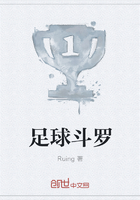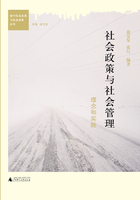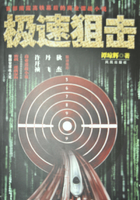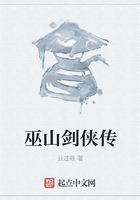IN Mr. GOODRICH'S OFFICE
As was my duty I went next to the district attorney's office to tell him about Mrs. Cunningham and the gold bag, and to find out from him anything I could concerning Gregory Hall. I found Mr.
Porter calling there, and both he and Mr. Goodrich welcomed me as a possible bringer of fresh news. When I said that I did know of new developments, Mr. Porter half rose from his chair.
"I dare say I've no business here," he said; "but you know the deep interest I take in this whole matter. Joseph Crawford was my lifelong friend and near neighbor, and if I can be in any way instrumental in freeing Florence from this web of suspicion - "
I turned on him angrily, and interrupted him by saying "Excuse me, Mr. Porter; no one has as yet voiced a suspicion against Miss Lloyd. For you to put such a thought into words, is starting a mine of trouble.".
The older man looked at me indulgently, and I think his shrewd perceptions told him at once that I was more interested in Miss Lloyd than a mere detective need be.
"You are right," he said; "but I considered this a confidential session."
"It is," broke in Mr. Goodrich, "and if you will stay, Mr.
Porter, I shall be glad to have you listen to whatever Mr.
Burroughs has to tell us, and then give us the benefit of your advice."
I practically echoed the district attorney's words, for I knew Lemuel Porter to be a clear-headed and well-balanced business man, and his opinions well worth having.
So it was to two very interested hearers that I related first the story of Florence's coming downstairs at eleven o'clock on the fatal night, for a final endeavor to gain her uncle's consent to her betrothal.
"Then it was her bag!" exclaimed Mr. Porter. "I thought so all the time."
I said nothing at the moment and listened for Mr. Goodrich's comment.
"To my mind," said the district attorney slowly, "this story, told now by Miss Lloyd, is in her favor. If the girl were guilty, or had any guilty knowledge of the crime, she would not have told of this matter at all. It was not forced from her; she told it voluntarily, and I, for one, believe it."
"She told it," said I, "because she wished to take the responsibility of the fallen rose petals upon herself. Since we are speaking plainly, I may assure you, gentlemen, that she told of her later visit to the office because I hinted to her that the yellow leaves might implicate Gregory Hall."
"Then," said Mr. Goodrich triumphantly, "she herself suspects Mr.
Hall, which proves that she is innocent."
"It doesn't prove her innocent of collusion," observed Mr.
Porter.
"Nor does it prove that she suspects Mr. Hall," I added. "It merely shows that she fears others may suspect him."
"It is very complicated," said the district attorney.
"It is," I agreed, "and that is why I wish to send for the famous detective, Fleming Stone."
"Stone! Nonsense!" exclaimed Mr. Goodrich. "I have every confidence in your skill, Mr. Burroughs; I would not insult you by calling in another detective."
"Surely not," agreed Mr. Porter. "If you need help, Mr.
Burroughs, confer with our local man, Mr. Parmalee. He's a pretty clever chap, and I don't know why you two don't work more together."
"We do work together," said I. "Mr. Parmalee is both clever and congenial, and we have done our best in the matter. But the days are going by and little of real importance has been discovered.
However, I haven't told you as yet, the story of the gold bag. I have found its owner."
Of course there were exclamations of surprise at this, but realizing its importance they quietly listened to my story.
With scarcely a word of interruption from my hearers, I told them how I had found the card in the bag, how I had learned about Mrs.
Purvis from headquarters, how I had gone to see her, and how it had all resulted in Mrs. Cunningham's visit to Miss Lloyd that morning.
"Well!" exclaimed Mr. Porter, as I concluded the narrative.
"Well! Of all things! Well, I am amazed! Why, this gives a wide scope of possibilities. Scores of our people come out on that theatre train every night."
"But not scores of people would have a motive for putting Joseph Crawford out of the way," said Mr. Goodrich, who sat perplexedly frowning.
Then, by way of a trump card, I told them of the, "extra " edition of the evening paper I had found in the office.
The district attorney stared at me, but still sat frowning and silent.
But Mr. Porter expressed his wonderment.
"How it all fits in!" he cried. "The bag, known to be from that late train; the paper, known to have been bought late in New York! Burroughs, you're a wonder! Indeed, we don't want any Fleming Stone, when you can do such clever sleuthing as this."
I stared at him. Nothing I had done seemed to me "clever sleuthing," nor did my simple discoveries seem to me of any great significance.
"I don't like it," said Mr. Goodrich, at last. "Everything so far known, both early and late information, seems to me to point to Gregory Hall and Florence Lloyd in collusion."
"But you said," I interrupted, "that Miss Lloyd's confession that she did go down-stairs late at night was in her favor."
"I said that before I knew about this bag story. Now I think the case is altered, and the two who had real motive are undoubtedly the suspects."
"But they had no motive," said Mr. Porter, "since Florence doesn't inherit the fortune."
"But they thought she did," explained the district attorney, "and so the motive was just as strong. Mr. Burroughs, I wish you would confer with Mr. Parmalee, and both of you set to work on the suggestions I have advanced. It is a painful outlook, to be sure, but justice is inexorable. You agree with me, Mr. Porter?"
Mr. Porter started, as if he, too, had been in a brown study.















